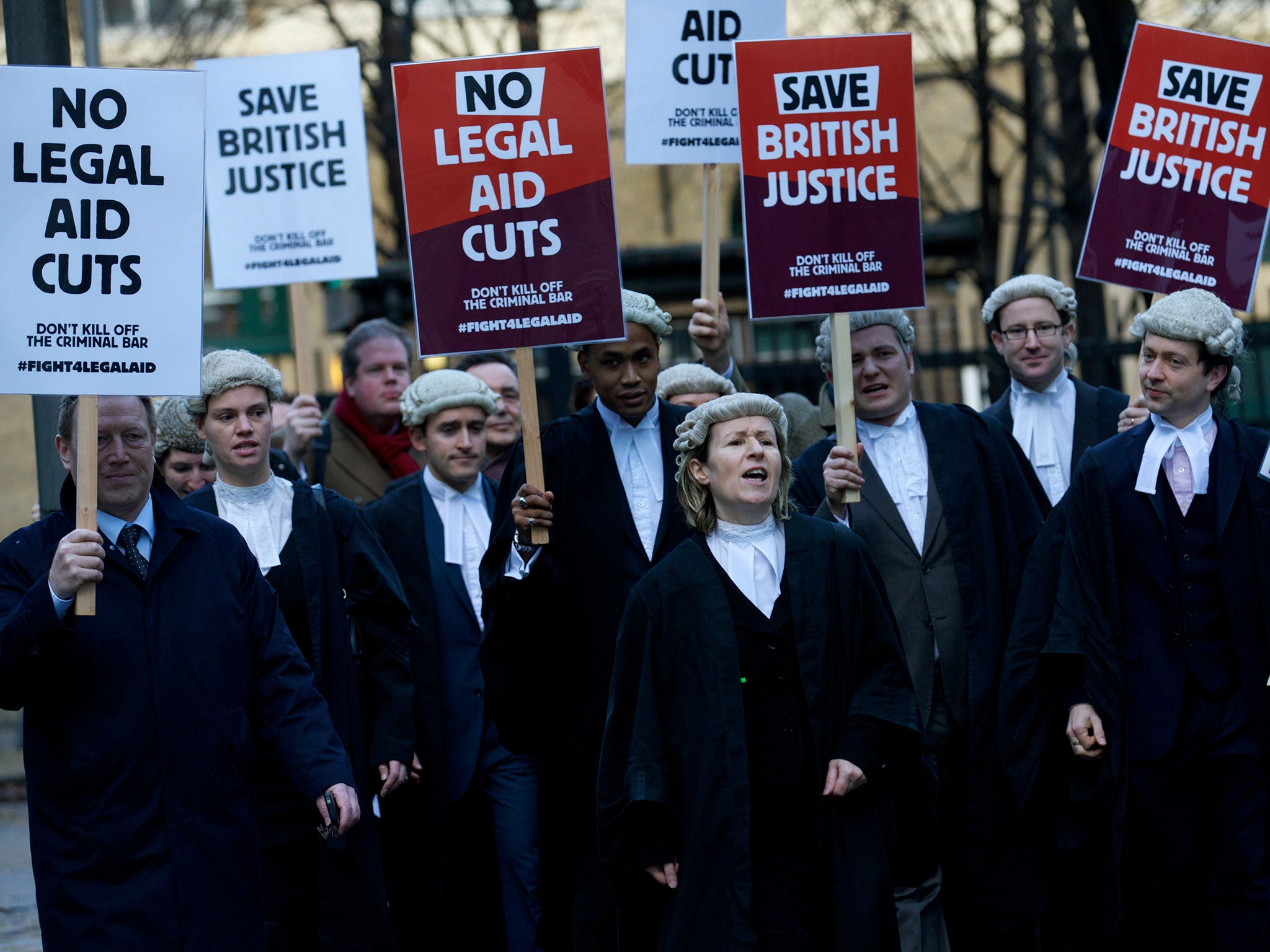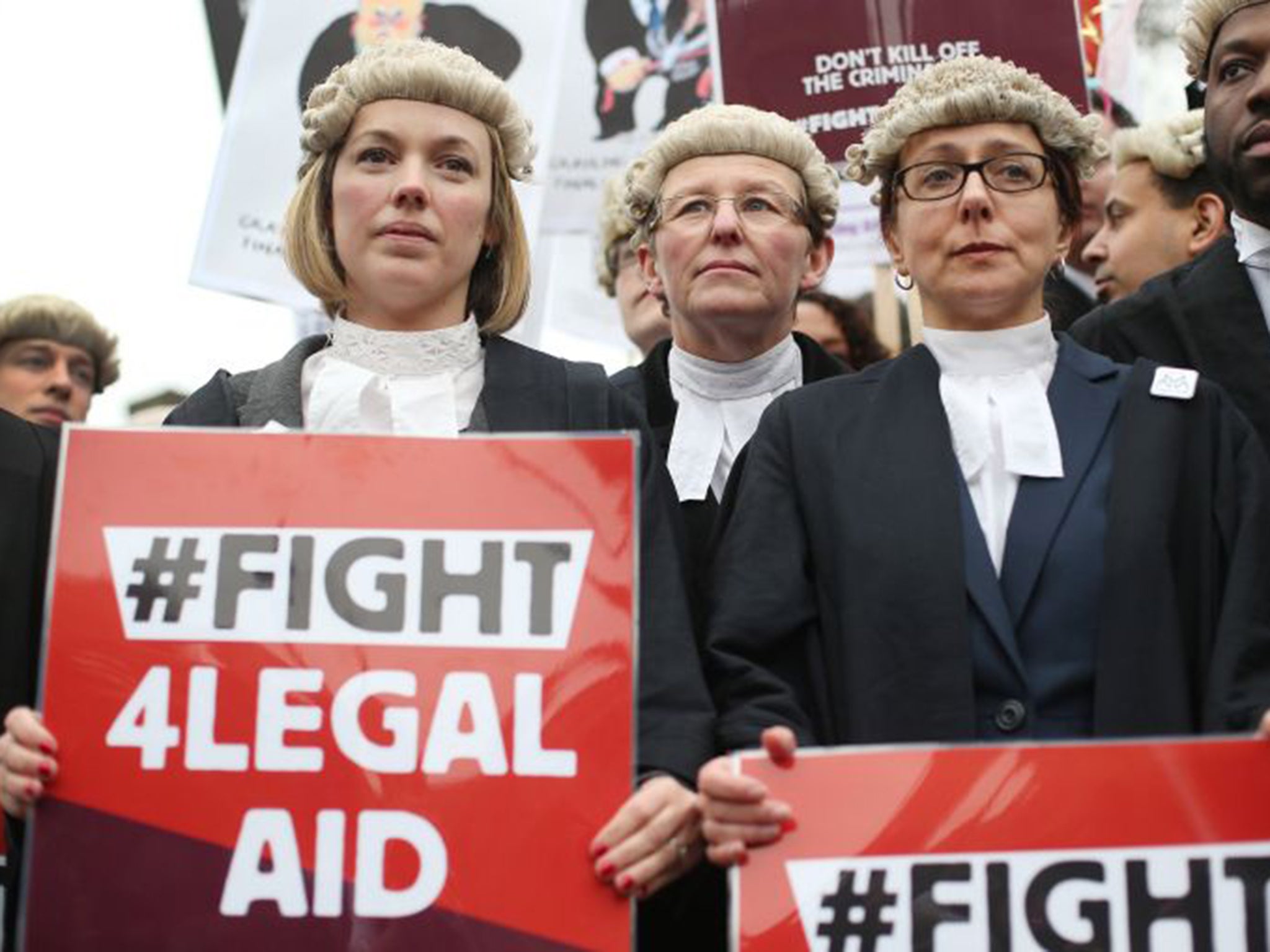Government legal aid cuts undermine right to criminal defence, MPs warn
Justice Committee demands funding review after warning that cuts are driving 'crisis'

Your support helps us to tell the story
From reproductive rights to climate change to Big Tech, The Independent is on the ground when the story is developing. Whether it's investigating the financials of Elon Musk's pro-Trump PAC or producing our latest documentary, 'The A Word', which shines a light on the American women fighting for reproductive rights, we know how important it is to parse out the facts from the messaging.
At such a critical moment in US history, we need reporters on the ground. Your donation allows us to keep sending journalists to speak to both sides of the story.
The Independent is trusted by Americans across the entire political spectrum. And unlike many other quality news outlets, we choose not to lock Americans out of our reporting and analysis with paywalls. We believe quality journalism should be available to everyone, paid for by those who can afford it.
Your support makes all the difference.Government funding cuts are damaging the fundamental right to legal defence, MPs have warned.
Lawyers have already launched strikes and a judicial review over legal aid arrangements, which are intended to ensure people unable to afford legal advice, family mediation and representation in court are treated fairly.
But the Justice Committee said government changes risk undermining the rule of law and demanded an urgent review to be completed by March 2020.
Bob Neill, committee chair, said the right to legal representation is enshrined under the European Convention on Human Rights.
“There is compelling evidence of the fragility of the Criminal Bar and criminal defence solicitors' firms, which places these rights at risk – a risk which can no longer be ignored,” he added.
“The government cannot kick these problems down the road any longer and they must carry out comprehensive reviews to develop policies that are sustainable in the long term.
“An effective criminal justice system is one of the pillars on which the rule of law is built. Under-funding of the criminal justice system in England and Wales threatens its effectiveness, tarnishing the reputation of our justice system as a whole, and undermining the rule of law.

“These reviews should be carried out with urgency to end the crisis we are currently facing.”
Lawyers told the committee of their “deep unhappiness” about the future of the criminal justice system, amid struggles to retain barristers and solicitors.
Defence specialists said they are not properly paid to comb through mountains of digital evidence, following a scandal over the collapse of several rape cases due to disclosure failings.
“We conclude the pressure placed on defence lawyers to fulfil their professional obligations by reviewing unused prosecution material without remuneration is fundamentally unfair and, with the continual increase in the amount of such material, likely to become unsustainable, and increasingly prejudicial to the defendant,” the Justice Committee concluded.
Evidence to the committee had indicated a ”worryingly high level of demoralisation“ among defence lawyers ”with negative implications for the criminal justice system, especially for defendants“.
MPs recommended an urgent, cross-departmental review of criminal justice funding to be completed ahead of the 2019 Spending Review and ”with the aim of restoring resources to a level that enables the system to operate effectively“.
The report builds on oral evidence from lawyers about recent changes to legal aid, specifically the Litigators' Graduated Fee Scheme (LGFS) and the Advocates' Graduated Fee Scheme (AGFS).
The Law Society launched a High Court challenge over the LGFS in December, calling it an “arbitrary cut that will do little if anything to drive down the legal pay bill”.
The change saw the number of pages of prosecution evidence that lawyers can be remunerated for slashed from 10,000 to 6,000, following a fee cut of 8.75 per cent in 2014.
Members of the Criminal Bar Association then started refusing legal aid work in March over the AGFS, which it labelled the “final straw”, warning: “Prisons, courts, the police and probation services are underfunded and in chaos. The impoverishment of the system is well known to the government and MPs.”
The Justice Committee described both disputes as “regrettable” but and said that although the Criminal Bar had since accepted the government’s offer for additional AGFS funding, the underlying issues have not been resolved.
“The Committee recommends that the government conduct an urgent cross-departmental review of funding of all elements of the criminal justice system, with the aim of restoring resources to a level that enables the system to operate effectively,” MPs concluded, calling for an annual review of the AGFS by a panel including representatives of barristers and solicitors.
A Ministry of Justice spokesperson said: “We are already conducting a wide-ranging, evidence based review of the reforms to legal aid.
"We are talking to stakeholders across the profession and will take these views into account when considering the future of legal support in the justice system.
“Ensuring everyone can resolve their legal problems is vital to a just society. The reforms under the Legal Aid, Sentencing and Punishment of Offenders Act 2012 did not significantly change the availability of legal aid for criminal cases and last year alone we spent almost £900m on legal support for these cases.”
Join our commenting forum
Join thought-provoking conversations, follow other Independent readers and see their replies
Comments